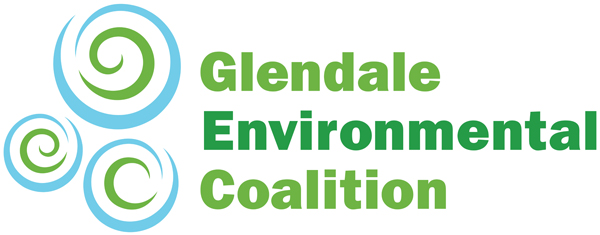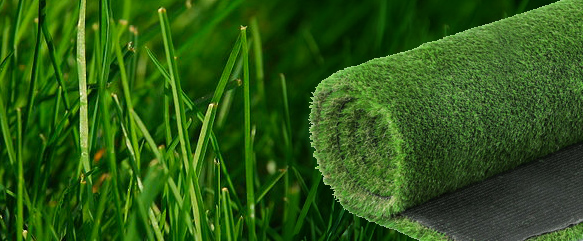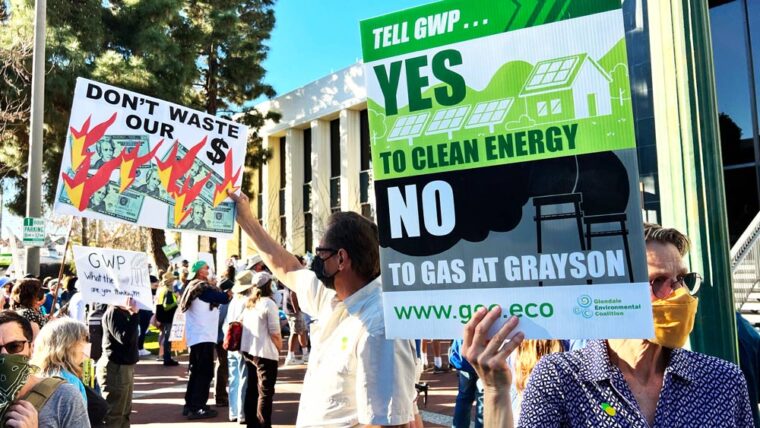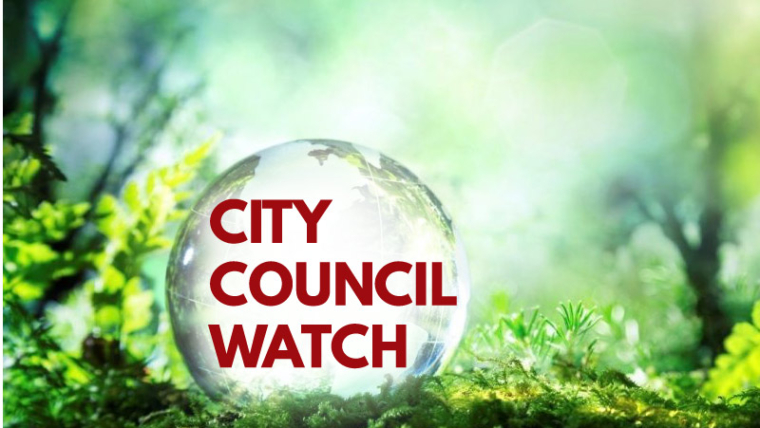The Glendale Community Services & Parks Commission is recommending natural grass instead of artificial turf for five fields on Glendale’s near-term capital improvement list, the first two being Fremont Park and Pacific Park. The vote was 3-2 after a 90-minute staff presentation followed by at least 25 calls from Glendale residents with the clear majority of callers strongly opposed to installing artificial turf.
The 99 slides presented by staff covered the popularity of soccer among youth leagues and adult players, a prediction that it would continue to grow, many calculations related to use and maintenance, the reasons artificial turf was installed 20 years ago on Sports Complex fields, surveys conducted by staff of local soccer leagues and other artificial turf and natural grass system users, and comparisons of different types of field installations.
The slide “Park Management – A Balancing Act” wrapped up the presentation, and it listed “Environmental Impacts” and “Sustainability” along with “Access to Fields” “Maintenance Costs” and “Fiscal Responsibility” as factors the Community Services and Parks Department takes into account while planning projects. Elise Kalfayan, one of the callers, suggested that the city rebalance the weights given to these to prioritize addressing our environmental crises.
While some callers did advocate for artificial turf as a better playing surface, the majority objected to artificial turf on several grounds: contribution to the heat island effect, plastic waste, microplastic pollution, its fossil fuel origins (and link to climate change), and environmental degradation. Caller David Eisenberg presented the results of a Sierra Club Verdugo Hills Chapter petition (which GEC posted and invited people to sign). As of 7am Monday, 144 Glendale residents and 26 non-residents connected with Glendale had signed on to oppose the installation of artificial turf.
After public comment, staff fielded questions in detail from three commissioners. Commissioner Henrik Sardarbegian had no specific questions, but noted that he played soccer and was in favor of artificial turf. Commission Chair Ara Kalfayan moderated the meeting and was initially concerned with the fact that people calling to express their opinion were not users of the fields, until caller Ben Ipekjian noted with some ire that everyone in Glendale should have a say in these installations, not just soccer players.
Commissioner Susan Wolfson wanted more information about the EPIC natural grass system, which uses sublayers to help water drain. Wolfson also asked if we could restrict use of artificial turf to indoor surfaces and keep it away from the natural environment. She noted that Glendale already has several artificial turf fields and questioned the need for more, and staff responded citing strong demand for fields (Commissioner Kate Eberle in her comments later noted that Glendale won’t be able to satisfy all demands like these in any case).
Wolfson along with some of the callers had questions about the staff estimates of revenues for field use fees, as the report claimed artificial turf brings in 5 times the revenue of grass fields. There are currently no natural grass soccer fields in Glendale, so the revenue comparisons were difficult to parse out.
Commissioner Eberle expanded on her comment above by asking if Glendale is absorbing the demand of users from other cities (Burbank does not have soccer fields – those users may be coming here). The commission and the city are committed to creating spaces where people can live, work and play, but we don’t need to have pro-grade soccer fields for people who want them all the time, she emphasized. Repeating the concerns of callers about the heating effect of so many impermeable surfaces, especially as artificial turf is being installed in our urban areas and on school grounds adjacent to so much concrete already, Eberle also noted that the issue of microplastic shedding and pollution is huge.
Commissioner Jane Potelle said she played soccer as a child and never minded playing in rain, mud, snow. She noted Glendale doesn’t have many rainy days, so the potential for muddy fields should not be a determining factor of whether to choose artificial turf over natural grass; heat waves are a much bigger factor; reclaimed water, and the planned pilot of electric landscaping equipment, would both reduce the environmental impacts of natural grass fields.
Potelle agreed with caller Grant Michaels’ point that Community Services and Parks does not have a revenue-focused mission but instead is focused on improving quality of life. She also emphasized that all park users, not just field users, would be affected by artificial turf’s heat island effect, and that we are all stakeholders when it comes to quality of life issues like park installations in Glendale. She also expressed concern for the heat impacts of artificial fields in the case of the two shared use projects: heat coming off those fields can greatly impact that school experience and the elementary and middle schoolers consistent exposure to that much plastic with microshedding and PFAS is concerning. When she asked about purchasing more property to create fields, staff answered that an acre of land in South Glendale would cost an average of $24M, and the total budget they are working with for the improvements is $11M.
Eberle and Potelle discussed the desire for the new Sustainability Commission to weigh in on ways to alleviate environmental impacts and provide suggestions on ways to improve upon facility installation sustainability on future projects.
Potelle motioned that the Parks, Recreation and Community Services Commission recommend natural grass for fields in the short term, while waiting to see if there are innovations in natural grass systems the department could use in the future instead of artificial turf. After some discussion, Wolfson offered another motion to simply recommend natural grass for the fields. The motion carried 3-2 with Eberle, Potelle, and Wolfson in favor, and Sardarbegian and Kalfayan opposed.
GEC thanks Commissioners Wolfson, Eberle and Potelle for taking a stand to protect our environment, and also truly thanks everyone who signed the petition, sent emails, or called in to the meeting to voice concern.
We are all working together to make our community a model of environmental stewardship and climate action!
Additional Links:
GEC’s Letter of Concern Re Artificial Grass Installations (February, 2021)
GEC’s Followup Response to Staff Report (April, 2021)
Commission Meeting (Video and Agenda)
Discover more from Glendale Environmental Coalition
Subscribe to get the latest posts sent to your email.



